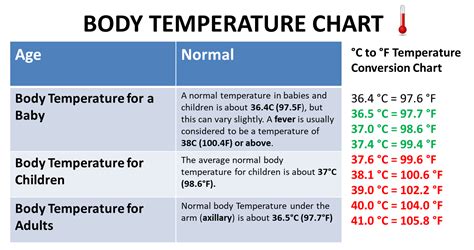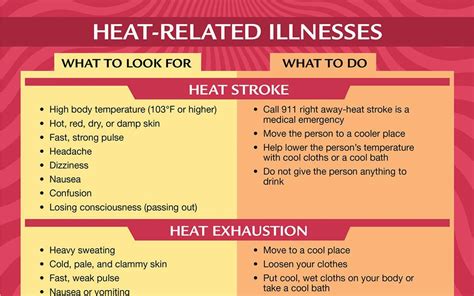Intro
Discover the significance of normal body temperature, exploring 5 ways it affects overall health, including fever regulation, metabolism, and immune function, with related terms like hypothermia and hyperthermia.
Normal body temperature is a vital sign that indicates the overall health and functioning of the human body. It is essential to understand the concept of normal body temperature, its importance, and the factors that influence it. In this article, we will delve into the world of body temperature, exploring its significance, the factors that affect it, and providing valuable insights into maintaining a healthy body temperature.
The human body is a complex system that functions optimally within a narrow temperature range. Normal body temperature is typically considered to be around 98.6°F (37°C), but it can vary slightly from person to person. This temperature range is crucial for the proper functioning of the body's metabolic processes, enzyme activity, and overall physiological balance. Even small deviations from the normal temperature range can have significant effects on the body's functioning, making it essential to understand the factors that influence body temperature.
Body temperature is regulated by the hypothalamus, a small region in the brain that acts as the body's thermostat. The hypothalamus receives input from temperature sensors located throughout the body and adjusts the body's temperature by controlling sweat production, shivering, and other mechanisms. Maintaining a normal body temperature is essential for the proper functioning of the body's organs and systems, and any significant deviations can have serious consequences. For example, a body temperature that is too high can lead to heatstroke, while a body temperature that is too low can lead to hypothermia.
Understanding Normal Body Temperature

Factors that Influence Body Temperature
The factors that influence body temperature can be broadly categorized into two groups: internal and external factors. Internal factors include the body's metabolic rate, hormone levels, and the functioning of the hypothalamus. External factors include environmental temperature, humidity, and physical activity. Understanding these factors is essential for maintaining a healthy body temperature and preventing temperature-related illnesses.Maintaining a Healthy Body Temperature

Benefits of Maintaining a Healthy Body Temperature
Maintaining a healthy body temperature has numerous benefits, including improved physical performance, enhanced cognitive function, and a reduced risk of temperature-related illnesses. A healthy body temperature also promotes better sleep quality, improved digestion, and a stronger immune system. Additionally, maintaining a healthy body temperature can help prevent chronic diseases, such as diabetes, cardiovascular disease, and certain types of cancer.5 Ways to Regulate Body Temperature

Practical Tips for Regulating Body Temperature
In addition to the above methods, there are several practical tips that can help regulate body temperature. These include: * Using a thermometer to monitor body temperature * Avoiding hot or cold showers * Wearing lightweight, breathable clothing * Staying in air-conditioned or heated spaces during extreme weather * Avoiding strenuous physical activity during peak temperature hoursCommon Temperature-Related Illnesses

Symptoms and Treatment of Temperature-Related Illnesses
The symptoms and treatment of temperature-related illnesses vary depending on the specific condition. For example, heatstroke symptoms include high body temperature, confusion, and seizures, while hypothermia symptoms include shivering, confusion, and drowsiness. Treatment for these conditions typically involves addressing the underlying cause of the temperature disruption and providing supportive care, such as hydration and temperature regulation.Temperature Regulation in Different Age Groups

Temperature Regulation in Newborn Babies
Newborn babies have a unique temperature regulation system that is still developing. They have a higher normal body temperature than adults and are more susceptible to temperature fluctuations. It is essential to monitor newborn babies' temperature closely and provide a warm and stable environment to promote healthy temperature regulation.Temperature Regulation in Older Adults

Temperature Regulation in People with Medical Conditions
People with certain medical conditions, such as diabetes, cardiovascular disease, and certain types of cancer, may have impaired temperature regulation. It is essential to monitor their temperature closely and provide individualized care to promote healthy temperature regulation.What is the normal body temperature range?
+The normal body temperature range is typically considered to be around 98.6°F (37°C), but it can vary slightly from person to person.
What factors influence body temperature?
+Body temperature is influenced by various factors, including age, sex, physical activity, and environmental temperature.
How can I maintain a healthy body temperature?
+Maintaining a healthy body temperature requires a combination of lifestyle modifications, such as staying hydrated, dressing appropriately for the weather, and avoiding extreme temperatures, and medical interventions, such as medication or surgery, to address underlying medical conditions.
What are the benefits of maintaining a healthy body temperature?
+Maintaining a healthy body temperature has numerous benefits, including improved physical performance, enhanced cognitive function, and a reduced risk of temperature-related illnesses.
How can I regulate my body temperature?
+There are several ways to regulate body temperature, including staying hydrated, dressing appropriately for the weather, avoiding extreme temperatures, engaging in regular physical activity, and getting enough sleep.
